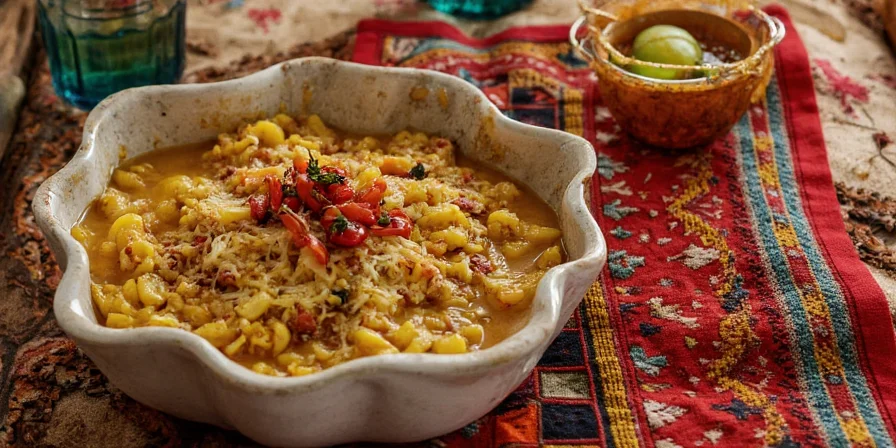Exploring the Rich Tapestry of Mexico's Authentic Cuisine
Mexico, a vibrant nation filled with rich traditions and a mosaic of cultures, offers an authentic culinary experience that is as diverse as its landscapes. From the bustling markets of Oaxaca to the coastal towns of Yucatán, the food of Mexico tells a story of its people, history, and geography. In this blog post, we will delve deep into the authentic flavors, ingredients, and cooking methods that define Mexican cuisine, celebrating its global influence and local roots.
The Essence of Mexican Cuisine
At the heart of authentic Mexican cuisine lies a blend of indigenous ingredients and Spanish influences, creating a unique culinary identity. The use of spices, fresh vegetables, and traditional cooking techniques has been passed down through generations, resulting in a rich gastronomic heritage.
Key Ingredients
- Corn (Maíz): The staple of Mexican cooking, corn is used in various forms, from tortillas to tamales.
- Chiles: A variety of chiles, both fresh and dried, add depth and heat to dishes, such as poblano, jalapeño, and chipotle.
- Beans: Often paired with corn, beans are a vital source of protein and are commonly used in soups, stews, and side dishes.
- Herbs and Spices: Cilantro, oregano, and cumin are just a few of the herbs and spices that create the signature flavors of Mexican dishes.
- Cheese: From Queso Fresco to Oaxaca cheese, cheese plays a prominent role in many traditional recipes.
The Journey of Authentic Mexican Dishes
Mexican food varies significantly by region, with each area boasting its unique specialties. Let’s explore some of the most authentic dishes that showcase the diversity of Mexican cuisine.
1. Tacos: A Culinary Icon
Tacos are perhaps the most recognized symbol of Mexican cuisine. Traditionally made with corn tortillas and filled with a variety of ingredients, they can be customized to suit any taste. The beauty of tacos lies in their versatility:
| Type of Taco | Common Fillings |
|---|---|
| Street Tacos | Grilled meats (asada, al pastor), onions, cilantro |
| Fish Tacos | Battered fish, cabbage, creamy sauce |
| Vegetarian Tacos | Grilled vegetables, beans, avocado |
2. Mole: The Sauce of Many Flavors
Mole is a complex sauce that varies by region, with each version containing a unique blend of ingredients including chocolate, spices, and chili peppers. The most famous is Mole Poblano, originating from Puebla, which combines over 20 ingredients and is often served over turkey or chicken. The preparation of mole is an art form, requiring patience and skill to balance the multitude of flavors.
3. Pozole: A Hearty Tradition
Pozole is a traditional soup made with hominy, meat (usually pork or chicken), and a variety of toppings such as radishes, cabbage, and lime. This dish has deep-rooted historical significance, often served during festivals and celebrations. It is a symbol of community and togetherness, bringing families and friends together around the table.
4. Tamales: Wrapped Delicacies
Tamales are made from masa (corn dough) and filled with meats, cheeses, or sweet ingredients, then wrapped in corn husks and steamed. They are a staple during holidays and special occasions, embodying the spirit of sharing and festivity. The preparation of tamales is often a communal activity, with families gathering to make them together.
Cooking Techniques: Preserving Tradition
The methods of cooking are just as important as the ingredients in authentic Mexican cuisine. Traditional techniques are often passed down through generations, preserving the essence of the dishes.
- Comal: A flat griddle used for cooking tortillas and roasting vegetables.
- Molcajete: A mortar and pestle made from volcanic stone, used to grind spices and make salsas.
- Slow Cooking: Many traditional stews and sauces are slow-cooked to enhance the flavors, allowing the ingredients to meld beautifully.
The Global Influence of Mexican Cuisine
Mexican food has transcended borders, influencing culinary traditions around the world. The global fascination with Mexican cuisine has led to the fusion of flavors and ingredients, creating new interpretations of classic dishes. However, it is essential to recognize and respect the authenticity of traditional recipes as the roots of this culinary art form.
Mexican Cuisine Around the World
From taco trucks in the United States to high-end Mexican restaurants in Europe, the love for Mexican food continues to grow. Chefs worldwide are experimenting with authentic recipes while infusing their local ingredients, creating exciting new culinary experiences.
Conclusion: Savoring Authentic Mexico
Authentic Mexican cuisine is not just about the food; it is a celebration of culture, history, and community. Every dish tells a story, carrying with it the traditions and flavors of generations past. As we savor the vibrant tastes of Mexico, let us appreciate the deep-rooted heritage and the love that goes into each meal. Whether you are enjoying tacos on the streets of Mexico City or indulging in mole at a family gathering, remember that you are part of a rich culinary tradition that spans centuries.

So, the next time you think of Mexican food, remember the authenticity it embodies, and take a moment to appreciate the incredible journey of flavors that make each dish a true work of art.










 浙公网安备
33010002000092号
浙公网安备
33010002000092号 浙B2-20120091-4
浙B2-20120091-4